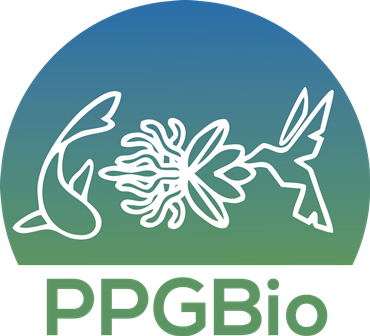Facilities for teaching and administration activities: The PPGBio has, in its main building (Prof. Dárdano de Andrade Lima): a coordination and secretariat room, a library that includes space for studies, two classrooms, auditorium, and a meeting room.
Facilities for research:
1. CENAPESQ: the Research Support Center is a multi-user laboratory that has several equipments that support the projects developed at PPGBio, such as: scanning electron microscope, fluorescence microscope, ultramicrotome, drying ovens, histological bath, among others. For more information, visit the website.
2. Research Group Laboratories:
- Laboratory of oceanography and pollution of aquatic environments (LOPAQ)
- Laboratory for the study of anthropogenic impacts on marine and estuarine biodiversity (BIOIMPACT)
- Laboratory of Parasitology (LAPAR)
- Plankton Ecology Laboratory (LEPLANC)
- Laboratory of coastal benthos ecology (LEBENC)
- GENOME Laboratory
- Laboratory of Integrative Systematics (LASI)
- Phycology Laboratory (LAFICO)
- Laboratory of physiology and in vitro cultivation of plants (LFC-Planta)
- Laboratory of plant anatomy and biochemistry (LABPLANTA)
- Laboratory of plant taxonomy (LATAX)
- Fish ecology laboratory
- Laboratory of Angiosperm Reproductive Ecology (LERA)
- Aquatic Population Dynamics Laboratory (DIMAR)
- Laboratory of Theoretical and Applied Ethology (LETA)
- Laboratory of herpetological and paleoherpetological studies (LEHP)
- Laboratory of benthic environments
3. Herbarium Prof. Vasconcelos Sobrinho (PEUFR): It has a collection of more than 50,000 specimens, of which more than 60% have already been digitized and are available on the specieslink platform.
4. Greenhouses
5. Tapacurá Ecological Station (EET) and Itamaracá Fishing Base, which include infrastructure available for researchers and students.
6. "Pesquisa em movimento" Program

